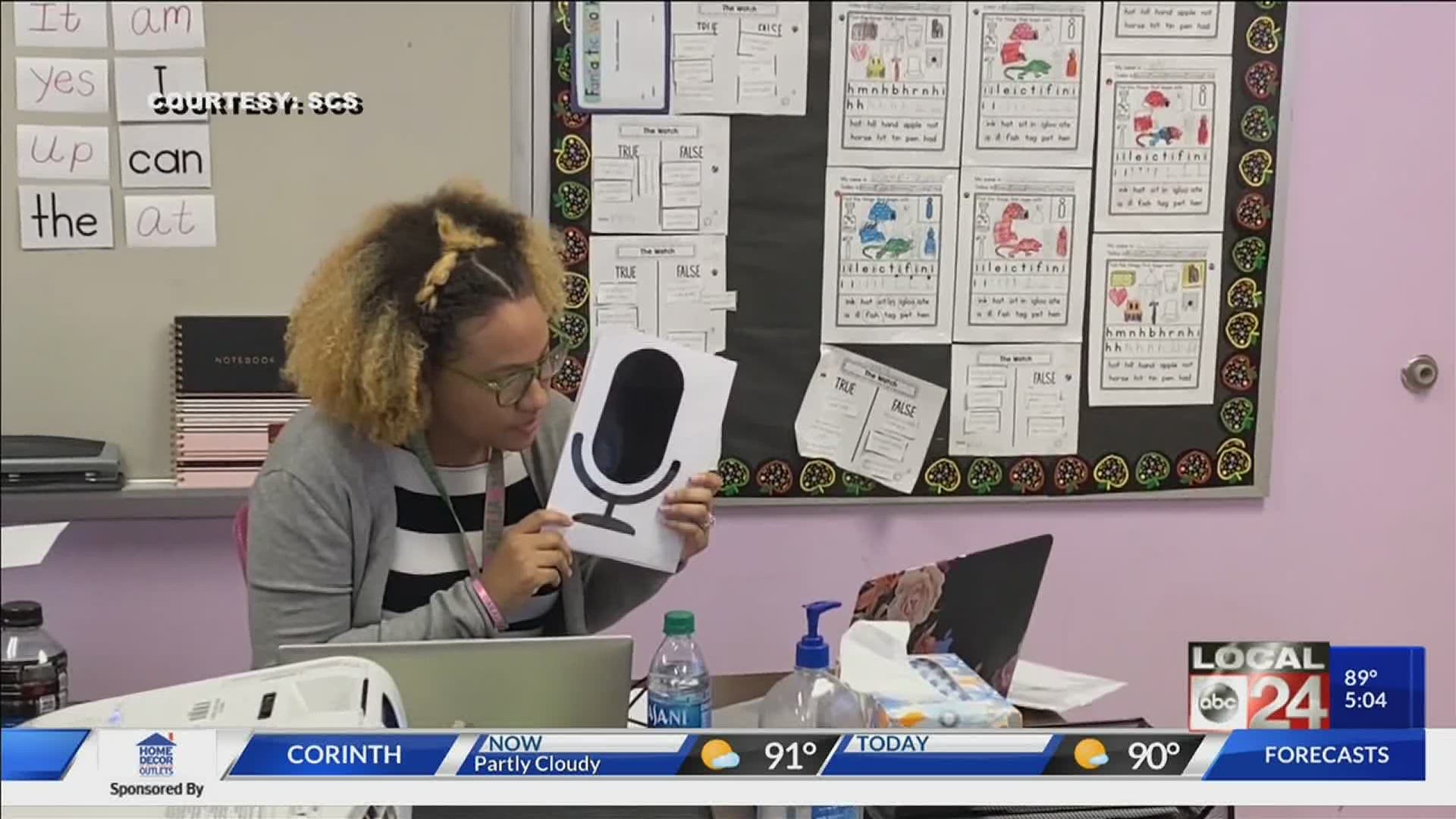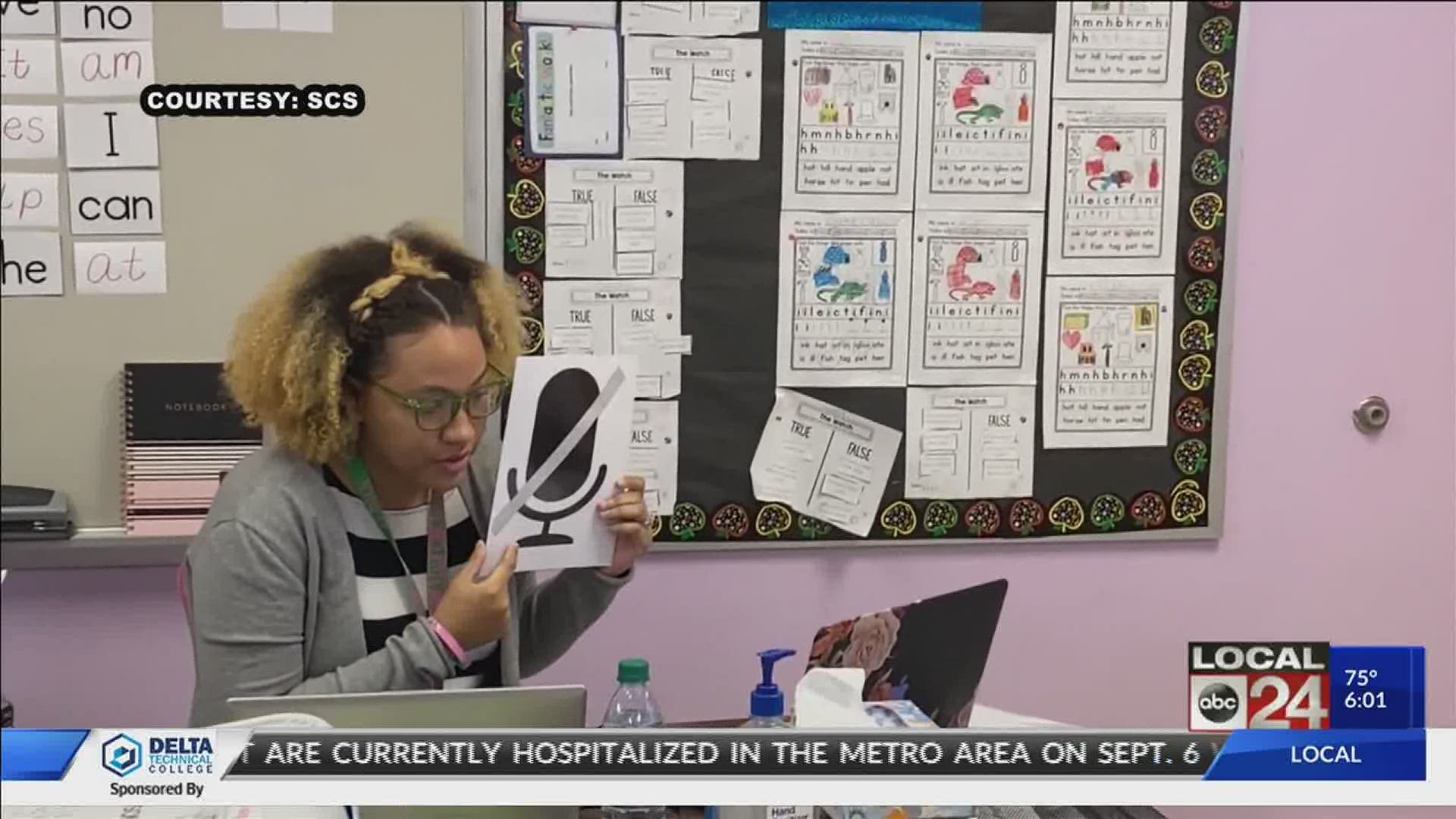MEMPHIS, Tenn — The switch to virtual learning has its challenges but there are more hurdles for students living with disabilities trying to get an education. Teachers and parents are both doing the best they can to help them achieve that.
From her classroom at Germantown Elementary, Special Education teacher Priscilla Bushart holds up her computer to a colored squares.
“Can you tell me the difference between these two that are blue?" she asks. "Yes that’s right!”
Over at Shelby Oaks Elementary, Special Education Teacher Melissa Jack-Pittman uses pictures between lessons to demonstrate what students should do on their end.
“If you see this sign, you will unmute and answer the question," she said as she points to a photo of a microphone. “Thumbs up if you agree.”
There are 19,000 Shelby County Students considered apart of the Exceptional Children and Health Services program, according to Director Deborah Harris.
Some of those students are considered gifted learners, others live with disabilities whether its physically or intellectually. She said the students who have special needs are still receiving the same support, but virtually.
“In their classrooms we have their special education teacher, we also have educational assistance," Harris said. "Some of our students are in need of one-on-one assistance in order to keep them on track, to keep them focused, and to assist them in completing their work.”
To assure students get the education they deserve, it takes a lot of work on both sides. Parents, too, have a lot more responsibility during the school day from home.
“I feel like I’m going to school with her because I have to stay there and help her out," Shontie Brown said.
Brown has five virtual learners at home. Her youngest daughter, Makayla, who has Down syndrome, just started kindergarten. She said it's been a challenge to keep her engaged at a screen for so long.
"She tries to run off and it just doesn’t keep her attention.," she said. "I try and change up the scenery by bringing her outside with the device.”
She also has to stand by to assist Makayla's movements online between logging in and changing classes.
"I have to sit there with her the whole time to help her navigate with the hang up for one class go into the other class," she said. "She wouldn’t be able to maneuver that on her end so we have to be there to help them.”
Maintaining attention is a struggle they're facing, Harris said. Teachers break up the day with mini-breaks. Bushart asked her students to stand up and dance with her while Jack-Pittman gets her students to stretch it out.
“We have frequent breaks, if we need to break off and have an educational assistance do special tutoring then that is absolutely done," Harris said.
Brown said she's also working with her daughter's teacher to see about making the class more interactive on both sides of the screen.
“I think they need more interactive kind of situation with the technology and I guess more apps with things that can help her touch the screen, not just look at it," she said.
While virtual learning continues, Brown can't help but fear that her daughter could fall behind.
“That is our main concern, them getting them everything they need," she said. "That’s the main concern. Will she fall back or fall behind?”
Harris said she encourages parents to call them at 901-416-5600 with questions and concerns.


